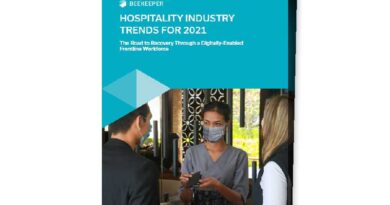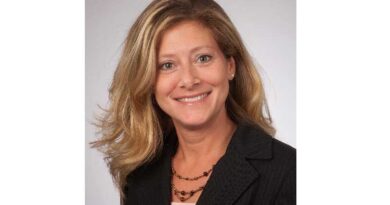Learn how to Grow Receivables Organically
Receivables are the lifeblood of our industry. Resort receivables, including consumer loan portfolios and maintenance fees, must perform during Covid-19 if many of our Developers, Lenders, Investors and Homeowner Associations (“HOAs”) are to survive. After Covid-19, receivables must grow and pay for our industry to prosper.
Over the past year, Fairshare and other industry contributors to Resort Trades and its Webinars have identified effective strategies to keep receivables paying during Covid-19. Such strategies include: pro-active contact, flexibility on consumer payment arrangements, appropriate Lender curtailments for Developers, smarter use of social media, incentivizing renewed payors, encouraging resort use, help with reservations, and expanding consumer value. At Fairshare, our Collectors use these tools every day to help clients protect their receivables, their cashflow and their customers. Our mantra remains “If they Stay and Play, they will Pay.”
Stability and loss prevention are a good start. But can Developers, Lenders, Investors and HOAs grow net balances mid-pandemic, off-setting amortization and attrition? And after this crisis abates, how do we return to robust portfolio originations? In a tough new world of “Timeshare Exit” charlatans and tighter consumer credit, how do we augment our old pre-Covid methods of generating solid, accretive receivables, and collect them effectively?
Fairshare is developing multi-faceted programs to do this, under the umbrella of “FairWay”. By massaging data and working through each client’s member base, we help them grow high yield, good-paying VOI consumer loan and/or maintenance fee receivables. FairWay generates increased cash collections, while engendering tremendous loyalty – at a low cost. FairWay can also increase member usage and resort operating revenues, while minimizing delinquencies. These programs are flexible enough for most resort Developers and HOAs, and can be tailored to meet many Lender and Investor requirements.
Resort developers to whom we introduce FairWay have always grown receivables by originating new financed VOI sales, traditionally at a ~50% sales & marketing cost but even higher in the present environment. Because typical VOI purchasers pay only a ~10% cash down-payment, financing up to 90% of their purchase, developers must monetize newly-originated VOI receivables, borrowing from a resort Lender (hypothecation loan) and/or financing with a resort Investor (securitization).
Resort Lenders and Investors to whom we introduce FairWay are accustomed to growing assets by monetizing these newly-originated receivables. High advances on new VOI receivables are not without risk. The consumer obligors have little cash invested, especially on “1st Generation” receivables with no payment history. Even newly-originated “Upgrade” receivables may have only short payment histories (at lower amounts), and lack established use patterns. Underwriters look mostly to each obligor’s credit profile (“FICO” score), and then hope the Developer (and later, HOA) will provide the services, accommodations, amenities, and exchange access which the consumer was promised.
Related: Fairshare Solutions Works Harder… So Its Clients Can Take A Vacation
HOA clients to whom we introduce FairWay fall into one of two categories. The first category includes developer-controlled HOA’s where annual maintenance fees may be low, but total receivables increase with resort sell-out. In the early years, the Developer covers operations shortfalls, in later years the Developer hopes to earn management fees. The second category includes mature resorts where there are no more sales, and the HOA is self-managed or employs a management company. Historically, in this category, the way to grow balances has been increasing maintenance fees or imposing the dreaded ‘special’ assessments.
There will always be opportunities to grow additional resort consumer loan receivables via first generation and upgrade originations, despite the high sales and marketing costs. Likewise, resort maintenance fee increases, when managed responsibly to ensure continued use and enjoyment, should always grow receivables. Even ‘special’ assessments, when they are permissible under the law and resort documents and handled smartly, can temporarily grow receivables. But growing receivables in these traditional ways brings several risks: high delinquency, excessive leverage, and potentially losing valuable customers.
Each of the FairWay programs we develop with our clients is designed to mitigate those risks, while growing balances. We begin by measuring and stratifying members based on payment histories, updated FICO scores, usage patterns, vacation habits, amenity preferences, APR yields, and other metrics. When we match members’ needs and wants with their demographics, their ability to pay and propensity to pay, the receivables generated at a low cost pay our clients extraordinarily well.
Although rescission and consumer protection statutes apply to most FairWay receivables, there is no high pressure, and complaints are rare. There is no Sales “push”, instead we engender a customer “pull.” Fairway receivables are “organic” in that they come from the existing resort member base. The origination process itself is also “organic”, because ultimately the member incubates their FairWay receivable.
Notably, conventional VOI receivables originations are often tied to the paydown of construction or development loans, via release fees. So, the Developer is “churning” every time they make a VOI sale, forced to increase long-term leverage to repay short-term debt, while banking on the receivable to pay it all off someday and earn the Developer some arbitrage. However, most FairWay receivables have no release fee obligation, so no churning.
The low delinquencies and good credit of FairWay receivables make Lenders and Investors happy. However, it should be noted that some FairWay programs are cash-positive from origination. The monetizing of such FairWay receivables is also “organic” (that word again), meaning that outside financing is not needed to produce net cashflow for a Developer or HOA. However, there are some innovative FairWay programs where Lenders and Investors can grow their own receivables.
As we help HOA clients originate and grow FairWay receivables, we can often drive business to resort amenities, or supplement resort revenue streams like rentals, gift shops or vouchers. FairWay programs can also help HOAs monetize unsold or repossessed VOI inventory, generating new maintenance fees.
Programs like FairWay cannot replace the traditional ways of growing resort receivables, but they can augment them. Our industry will always need 1st generation and upgrade originations, maintenance fee increases, and (rarely) those dreaded ‘special’ assessments. But programs like FairWay make an outsized contribution to the bottom line. Whether you are a Developer or HOA looking to brainstorm a FairWay program for your resort, a Lender or Investor exploring ways to finance FairWay receivables (or even create your own), or whether you just want to talk resort receivables, collections, sales, finance and operations, Dennis and I are always glad to hear from you.
Harry Van Sciver, Outside Director of Fairshare Solutions, has a lifetime of experience in resorts, banking, and collections. Prior to launching Fairshare with Dennis Rogers, Harry owned several timeshare projects, and has funded or managed $2.75 billion+ in consumer and commercial transactions. Harry is also the President of Whitebriar Financial Corporation, and a Director of Resorts Group, Inc.



